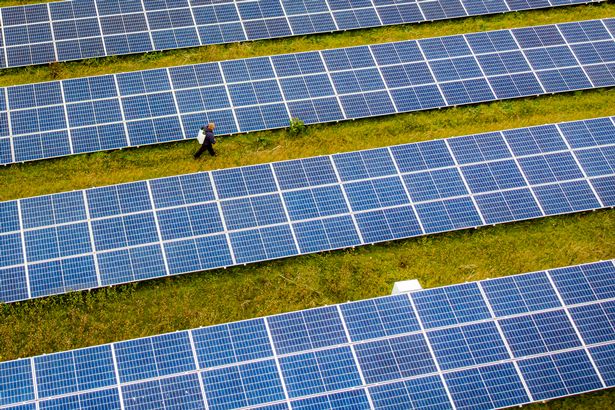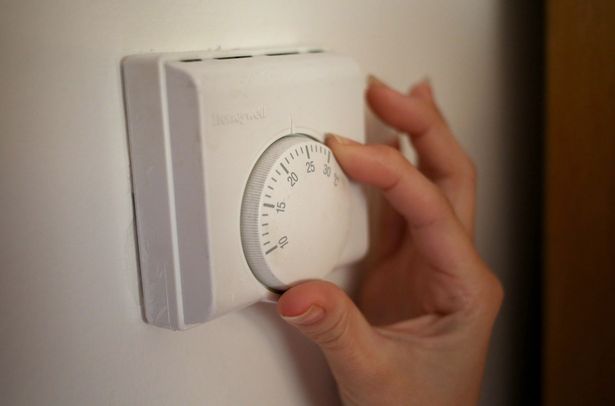As COP26 gets well underway in Glasgow, tonight’s Martin Lewis Money Show was aptly a “green” money saving special.
From advice on how to shave hundreds of pounds off your water bill, to how to get paid to recycle, the money saving expert took viewers on a whistle-stop tour of all the ways you can protect your pocket and the planet at the same time.
Here is the full bumper list of Mr Lewis’s tips.
1. Buy second-hand clothes
Lauren, who was a member of this week’s ‘Wallet Watchers’ and was also featured on Mr Lewis’s extreme savers series, explained how she made the decision in 2016 to only buy second-hand clothes – and has never looked back.
The sustainable shopper estimates she’s saved “thousands” by shopping second hand. She doesn’t limit herself to charity shops, but shops in car boot sales and jumble sales. These are often cheaper than thrift stores, which have capitalised on the popularity of second-hand clothes and upped their prices in recent times.
She’s found some “real bargains” in car boot sales, which are often no more than £1 or £2 per item.
She revealed the trendy dress she wore on tonight’s show cost only 20p from a jumble sale – and has similarly bought a dress worth £150 for just 20p at a charity warehouse sale.
2. Get a water meter fitted
Mr Lewis dubbed water meters the “forgotten utility” which could potentially save people hundreds of pounds a year.
“Water bills are based on the rateable value on your house – so the bigger it is, the more you pay – whereas meters depend on how much you use,” said Mr Lewis.
He explained that if there are fewer people in your house, you’ll use less water overall – which makes installing a water metre more attractive than relying on a water bill, which can account for empty rooms.
Water metres are free in England and Wales, and expert advised viewers to visit CCWATER.org.uk to see whether you can save with a water meter and how much.
3. Solar panels can be a good investment – but not for everyone
A viewer wrote in to ask if they would be financially better off to purchase solar panels for cheaper electricity.
“Panel prices have dropped over the last decade or so, so for a three kilowatt panel you’d now pay around £5,000 – it was £6,000,” said Mr Lewis.

(Image: PA)
But he went onto to explain that solar panel users used to get the Feed-in tariff, which meant they were paid for all the electricity they generated, even if they used it themselves. However, that tariff has now been scrapped, and there is the smart export guarantee instead. This only pays you for what you don’t use and feed back to the grid.
“It pays you on average roughly a quarter of what you pay for using energy,” said Martin.
He continued. “The payback time for most people on buying solar panels is 15 to 30 years. The further south you are in the country, the better, because you have more daylight hours. The more you’re at home in the day, the better, because you’re using the energy as it comes out – you’re not paying it back to go in the grid.”
He also pointed out that you can’t take solar panels when you move house, so you need to think about if you’re going to be in the same house for 15 years or more before investing. You also need a south facing roof to generate enough energy in the first place.
He concluded that while solar panels are generally good, they are “not right for everyone” and advised viewers to look at energysavingtrust.org.uk and other websites for more info.
4. Make small changes to how you live at home
The next portion of the programme featured a range of easier tips you can implement every single day and potentially save hundreds over the course of a year.
These were:
- Turn the thermostat down a degree. This could result in 4% reduction in energy use and £55 per year for typical use.
- Reduce shower time by a minute. If the whole family does this, you could save around 2% on energy use and £30 a year.
- Detect any draughts and try and get rid of the ones you find. This could result in a 2% energy saving and £25 saving per year.

(Image: PA)
- Install individual thermostats on radiators, so you only pay for the rooms that you’re heating. You could save 6% in energy use and £75 per year.
- Buy LED lightbulbs. These use about half the energy used by spiral ‘energy savers’.
- Wash clothes less frequently. Mr Lewis recommends washing bigger loads and less often, especially if your machine over 5 years old, as it will be less efficient.
- Only fill your kettle to the number of cups tea or coffee your making – so you can save on energy and water.
- Unplug your TV rather than leave it on standby. The savings are only 80p a year, but it’s still good for the planet.
- See if you’re eligible for free loft and cavity wall insulation. Those on benefits may be eligible for up to £100 free insulation.
5. Choose investments that are green while having good interest rates
Mr lewis discussed the new government NS&I Bond, which allows you to lock £100 to £100,000 in for 3 years, with the money funding government selected green projects. But he brands the interest rate – 0.65% a year – “pants” and says it’s not the best option of you’re looking at interest.
He contrasts the bond to the top easy access accounts – Cynergy at 0.66% and Marcus at 0.6% – and the top 3yr fix savings account – JN Bank UK at 1.81% – which are far better for interest.
He also highlights the top green savings account – Ecology Building Society which pays 0.8% and allows you to can put in up to £250 every month.
6. Get paid to recycle
Mr Lewis urged viewers to “recycle for cash”. For example, rather than throwing away your old mobile handset, you can try flogging it on comparison sites like sellmymobile.com and compareandrecycle.co.uk.
He also listed all the lesser-known options for recycling old clothes and makeup and getting money back in return.
For instance, if you take any old textiles to H&M, they’ll give you £5 voucher (as long as you spend a mininum of £25)
Meanwhile Oxfam will give you an M&S £5 off non-food voucher, if you give them M&S branded clothes (provided you spend £35).
You also shouldn’t throw your Mac cosmetic cases away, because if you take six in, you can get a free lipstick for £17.50.
It’s the same with Lush – you can free £9 facemask if you return five empty Lush black pots to store.
Read all our latest TV stories here.
He also reminded viewers to use re-usable cup in coffee shops to get money off your brew – the highest savings being 50p off in Pret, Paul and Pure.
Other tips included downloading the Refill app to find places where you can refill your water bottle up for free and returning excess plastic bags for 10p each – if you shop online at Morrisons or Ocado, they will pay you if you hand back their bags to van driver.
What do you think of Martin Lewis’s tips? Let us know in the comments below.
